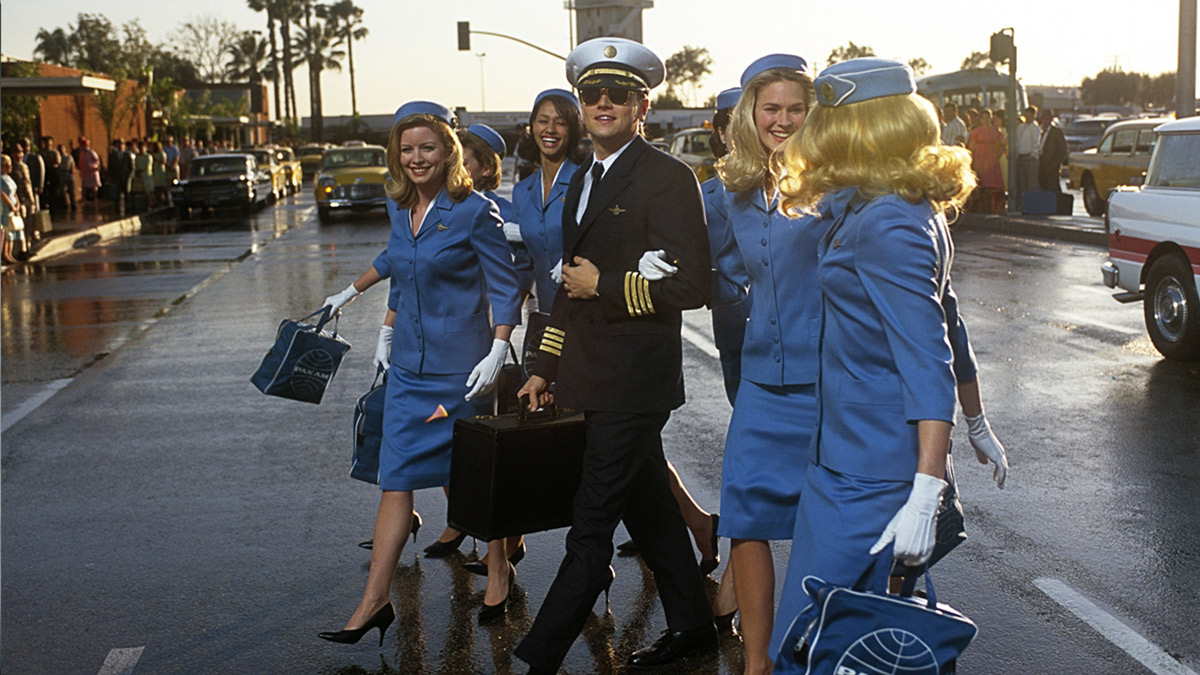2019.07.23
An adventure set in motion by impersonation
Well, if I were to summarize this work briefly, I would say it's a story about pseudonyms and migration. They use fake names to pretend to be different people, and move on once they sense danger. ``Catch Me If You Can'' is made up of the repetition of ``false names and movement''. This kind of ``pseudonym and migration'' is actually a motif that has been depicted many times in American literature.
For example, Mark Twain's novel `` The Adventures of Hackleberry Finn' ' can be said to be a novel about pseudonyms and displacement. Unable to endure the violence of his father, Hackleberry Finn (hereinafter referred to as Huck) leaves home and embarks on an escape journey down the Mississippi River with Jim, a black slave. The story follows Huck's ``adventure'' as he and his friend Jim go down a river on a raft.

"Catch Me If You Can" TM & (C) 2002 DREAMWORKS LLC ALL RIGHTS RESERVED.(C) 2012 DW Studios LLC All Rights Reserved.
Both Huck and Jim are in vulnerable positions where they have no choice but to flee for their lives, and they use false names for all the people they meet along the way. Huck tries to erase any trace of himself by using various pseudonyms like George Jackson, George Peters, or even Sayla Williams (he even uses a woman's name). When he meets people, he has no choice but to use a fake name almost reflexively. Translator Motoyuki Shibata describes the habits of these hacks as follows:
``The title ``The Adventures of Huckleberry Finn'' is, in a sense, a paradox, because in the various ``adventures'' that Huck goes through, he mostly pretends to be someone other than Huck. , a craftsman's apprentice, the son of a dispersed peasant family, an English squire... Huck's ``adventures'' are created by playing various ``roles.'' It is made up of
(Motoyuki Shibata, “ American Narcissus: From Melville to Millhauser ”, University of Tokyo Press)
An adventure set in motion by impersonation. This point also holds true as the ``Catch Me If You Can'' theory. It is strange to say that ``playing various ``roles'' creates Huck's ``adventures.'' Huckleberry Finn's ``adventures'' are made up of Huck ceasing to be Huck.''

"Catch Me If You Can" TM & (C) 2002 DREAMWORKS LLC ALL RIGHTS RESERVED.(C) 2012 DW Studios LLC All Rights Reserved.
The same goes for Abagnale. Secret Service, Barry Allen. Doctor Frank Connors. The false name he assumed is also essential to the adventure. An adventure story that comes about when you no longer are yourself. Huck, a young boy who travels forever along the Mississippi River, is very similar to Abagnale, who continues to run away while issuing counterfeit checks all over the world. They have no home to return to.
Abagnale's decision to run away from home stems from her parents' divorce and her lawyer forcing her to choose between living with her father and mother. The scene where Detective Hanratty points out to Zusei, ``I guess there's no one he can call,'' is a wonderful depiction of the loneliness he feels as he has no choice but to wander, with no place to return to.


